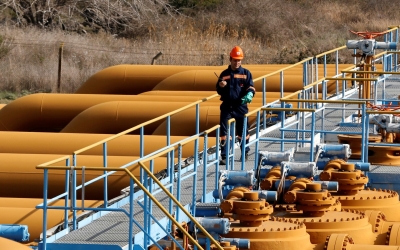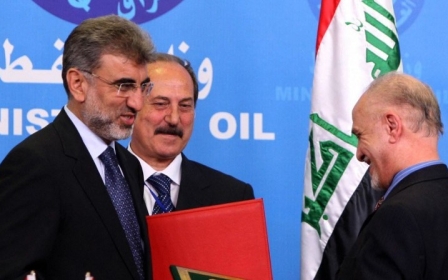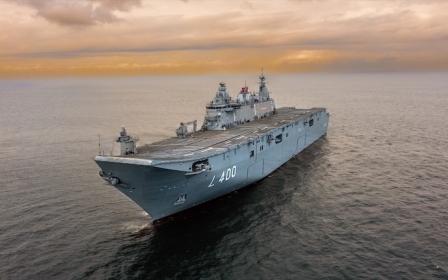Turkey mulls seeking US court to enforce $527m oil award against Iraq

Turkey is considering petitioning a federal US court to enforce a $527m arbitration award it won against Baghdad over disputes regarding crude oil exports from Iraq's autonomous Kurdistan region, two sources familiar with the matter told Middle East Eye.
The move is seen as a retaliation against Iraq, which last Monday filed a petition to the same court in Washington DC to enforce an arbitration award worth $1.4bn it won against Turkey.
Officials in Ankara have been dismayed by Baghdad's non-engagement over the issue, the sources said.
Baghdad's petition, filed with the US District Court of the District of Columbia, has requested that the court move ahead with "Recognizing, Confirming, and Enforcing the Final Award issued by the Arbitral Tribunal".
Iraq sued Turkey nearly nine years ago over an oil deal between Ankara and Erbil on exports through the Kirkuk-Ceyhan pipeline. Baghdad has maintained for years that the Iraqi Kurdistan region does not have any authority to make energy exports without its consent.
New MEE newsletter: Jerusalem Dispatch
Sign up to get the latest insights and analysis on Israel-Palestine, alongside Turkey Unpacked and other MEE newsletters
Last month, the International Chamber of Commerce (ICC) ruled that Turkey had breached contract by directly trading oil with the Kurdish Regional Government (KRG) between 2014-2018.
The ICC decided that Turkey only breached the contract by loading tankers with the oil that was transported to Ceyhan port under the instructions of the KRG, because the 2010 amendment to the Iraq-Turkey Pipeline agreement makes clear that the Iraqi oil ministry and its corporation, Somo, are the only legitimate authorities that could issue orders for loading.
The ICC awarded $1.9bn to Iraq but also awarded more than $500m to Turkey for its counterclaims of low capacity at the pipeline and unpaid transportation fees going back to the 1990s. All awards have pending interest rates.
If the US court rules in favour of Iraq, it can seize Turkey’s considerable financial assets in the United States to enforce the arbitration ruling.
After the ICC ruling, Turkey stopped the oil flow at the pipeline, corresponding to about 0.5 percent of global supply, citing the need for repairs due to corrosion and damage following the 6 February earthquakes that hit southern Turkey.
A person with knowledge of the matter told MEE that Ankara had wanted to wait until Erbil and Baghdad had resolved their dispute on the export of the KRG oil.
Iraqi Prime Minister Mohammed Shia al-Sudani and KRG Prime Minister Masrour Barzan signed a deal earlier in April to restart northern oil exports through Turkey. But the oil flow remained blocked.
"The Iraqi officials didn’t approach Ankara on the ICC ruling," the person said. "Ankara expected that Baghdad would formally relay the ruling and begin the calculation for the interest rates that are due on the awards. But that didn’t happen.”
A second source said officials in Ankara have been caught off-guard by Baghdad’s decision to file an enforcement action against Turkey in Washington, especially after Turkish President Recep Tayyip Erdogan’s order to double the flow of water along the Tigris River to drought-stricken Iraq for a month, which they thought a neighbourly gesture.
“Ankara may file a counter-enforcement action, and there might be more legal steps to remedy the situation,” the second person said.
Iraq’s decision to file an enforcement order in the US came after Ankara’s apparent strike on Sulaymaniyah airport to target Syrian Democratic Forces commander Mazloum Abdi Kobani earlier this month. Iraqi President Abdel Latif Rashid condemned the strike.
Middle East Eye delivers independent and unrivalled coverage and analysis of the Middle East, North Africa and beyond. To learn more about republishing this content and the associated fees, please fill out this form. More about MEE can be found here.





